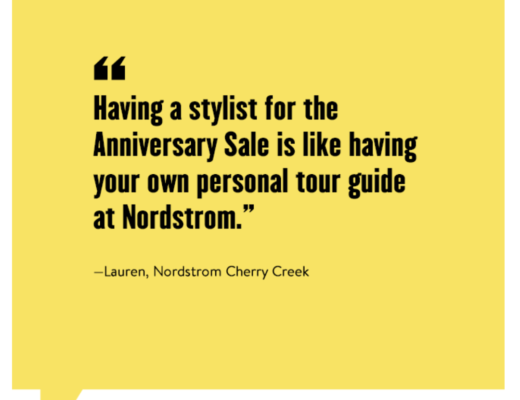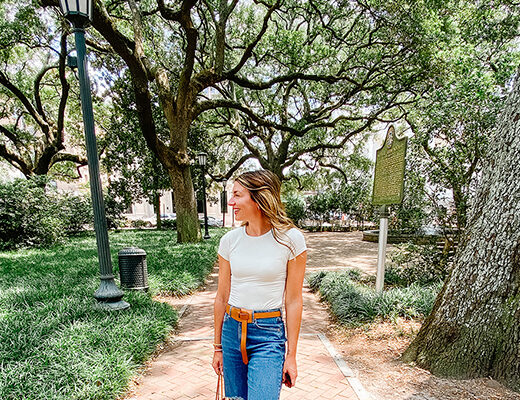The older I get, the more I care about the world around me. I wish it didn’t take me this long to get here, but it did, so I’m trying every day to be more conscious of my purchases, fashion or not. We all fall victim to fast fashion, myself included, but what does that really mean?
Fast Fashion Definition
Fast Fashion moves quickly from the runway to your closet and can be best described as the trendy pieces that were manufactured quickly and inexpensively to allow consumers to buy them as a lower price. Sounds amazing, right?! I’ve always thought so. Except when I heard a stat from a few years back that stated Americans purchase near 20 billion clothing items per year. On an environmental scale, this is HUGE (Zara alone processes 1 million pieces of clothing a day). We (Americans) throw away on average 10 lbs of clothing a year and most of it is dumped in a landfill somewhere. Yikes – that’s the part that really upsets me. I want to minimize my footprint, not maximize it with my clothing! Not only is fast fashion harmful to the environment, but most of the factories making the clothing have terrible working conditions and low pay for their workers, which is not a cause that I want to support.
How Can I Help?
Educate yourself! I heard about a movie on Netflix called The True Cost, that’s on my list to watch this fall. It explores the problems of fast fashion and brands that are breaking the mold.

When I turned 30, I vowed to never step foot in Forever 21 again (check out my ‘things I learned before 30’ here). I’ve stuck to that and I have no plans on ever going back there. Then I found out the worst offenders of fast fashion are Zara, H&M, and Forever 21. I had no clue two of my other favorite retailers were just as bad as Forever 21!! Now, I’ve made it my mission to support more companies who strive for more ethical fashion, which means they’re manufacturing their clothing in an environmental friendly way. Here are a few brands that currently stand out to me:
- Everlane (men’s and women’s ethical apparel, shoes, accessories)
- PACT (organic, eco-friendly, the cutest basics)
- ABLE (female artisan-made in Peru, fair labor practices)
- Thought Clothing (organic, eco-friendly)
Eventually, I would love if all my clothes were ethically-sourced, but that’s probably not realistic or financially possible. But, there are things I can do to constantly improve my wardrobe.
Here’s a few more ways to be more conscious of what you buy:
- Try to keep your wardrobe to 30 items or less. One of our favorite Chicago bloggers, Jess Keys, puts together her own wardrobe capsule collections and I LOVE this idea. It shows women that you can wear what you have in different ways and be happy with it! We might have to give this a try soon…
- Only purchase new items when something breaks, tears or no longer fits. Avoid the stockpile!
- Before you make a purchase, do your research on the brand/company.
- Take care of your clothes, treat them with respect – they’ll last longer.
- Quality over quantity – ALWAYS.
- Rent for a night out! Ya’ll know we love Rent the Runway – check out my favorite fall dresses here.

Source: Pinterest
So after reading, what do you think about your wardrobe? Leave us a comment below!
xoxo,
Lauren
Photo Cred: Hannah Persson Photo





Thanks for sharing! Learned a lot gals